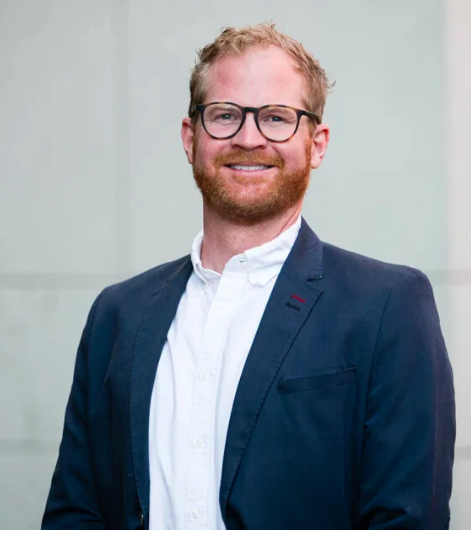Equity was at the forefront of two different issues addressed by the Buncombe County Board of Commissioners July 19. The county’s ad hoc reappraisal committee, tasked with reviewing allegations that Buncombe’s tax assessment process was unfair to low-income residents and communities of color, presented its recommendations to the board. And commissioners approved annual funding for reparations, honoring a request from the joint Asheville-Buncombe Community Reparations Commission.
The reappraisal committee, formed by Tax Assessor Keith Miller at the request of board Chair Brownie Newman in fall 2021, sought to answer questions around equity, address homeowner concerns and advise future assessment processes. It offered a series of 12 potential steps the county could take to improve its valuation process, including increasing the frequency of assessments, better educating community members about tax appeals and changing how short-term rental properties are valued.
None of the recommendations explicitly addressed potential differences in valuation between communities of different racial makeups. Research that had been presented to the committee by Joe Minicozzi, founder and principal of local urban planning firm Urban3, concluded that assessment patterns show “deep disparities in how the county assesses property values,” which he claimed are “deepening racial divides.”
In public comment prior to the committee’s presentation, Minicozzi alleged that county staff had failed to address Urban3’s concerns while “engaging in a campaign … to discredit our work.” The county assessments, he said, follow a nationwide tendency of assessing lower-value homes at disproportionately higher percentages of actual sale value compared with higher-value homes, thereby “placing an unfair burden on lower-income households and residents, particularly those of color.” By not addressing the “repeated, systemic” assessment issue, he continued, the county’s reparations work may be “a hollow political gesture.”
Urban3 analyst Ori Baber, who served on the ad hoc committee, challenged a report commissioned by the county from Syneva Economics, which found no such differences in assessment. Baber claimed Syneva’s work was “methodologically unsound” and “evidence of nothing,” asking for it to be amended or stricken from the committee’s record. Other committee members did not address Baber’s claims in subsequent comments, but Miller said the committee had given Urban3 space to present its own perspectives.
After the committee presented its recommendations, Commissioner Al Whitesides asked, “One of the big questions was the disparity [in assessments] in high-income homes and low-income homes. Did I miss this? Did you address that in the report?”
Committee member Jonathan Hunter replied, “There is nothing in the recommendations, per se, that would address that.” The board took no action at the meeting, although Newman said its members would revisit the issue in the future.
Following that discussion, the board voted unanimously to designate $500,000 yearly toward community reparations, with an annual increase of 2%. County funding for reparations will continue “as long as needed,” the board’s response to a reparations commission request for funding “in perpetuity.”
The county had already assigned $2 million for reparations in its fiscal year 2022-23 budget, nearly matching Asheville’s $2.1 million commitment for fiscal year 2021-22. The city included an additional reparations allocation of $500,000 this fiscal year and planned to fund the same amount in future budget cycles.
Ten community members addressed reparations during public comment, each voicing support for funding as a yearly budget item. “This is not just about Asheville — this is about our economy and our country as a whole,” said Tiffany Flunory De’Bellott, a reparations commission member. “I would rather wake up on the side that’s on the right side, to right the wrongs that have been made in the past.”
Commissioner Terri Wells echoed that support. “I feel like with our commissioners’ strategic priorities for early childhood and affordable housing, $500,000 is a good start. To me, this is about investing in wealth-building opportunities. By doing this, Buncombe County is going to be stronger for many generations,” she said.
In other news
The board unanimously approved distribution of $18.8 million in federal American Rescue Plan Act funds toward 24 projects, with those supporting broadband expansion, mental health services and affordable housing getting the largest awards. The county has now distributed $46.8 million of its total $50.7 million ARPA allocation.
Prior to the vote, Commissioner Robert Pressley asked for the remaining $3.9 million in ARPA funds to go toward a Metropolitan Sewerage District project application that had been denied. The request, which Pressley said would only take effect if the state matched the county’s funds, would extend sewer services in the Candler area.
“I hear every day from the folks in Candler that they want more sewer access,” added Commissioner Parker Sloan. “I think it’s strange, and perhaps reckless, that there is no annual funding that goes into the expansion of sewer infrastructure.”
Newman said he was open to the expansion but cited the project’s cost and uncertainty of state matching funds as reasons for denying the MSD request. Pressley’s amendment was not included in the subsequent motion and vote. Commissioners will consider how to distribute the rest of the ARPA money in 2023.





Before you comment
The comments section is here to provide a platform for civil dialogue on the issues we face together as a local community. Xpress is committed to offering this platform for all voices, but when the tone of the discussion gets nasty or strays off topic, we believe many people choose not to participate. Xpress editors are determined to moderate comments to ensure a constructive interchange is maintained. All comments judged not to be in keeping with the spirit of civil discourse will be removed and repeat violators will be banned. See here for our terms of service. Thank you for being part of this effort to promote respectful discussion.